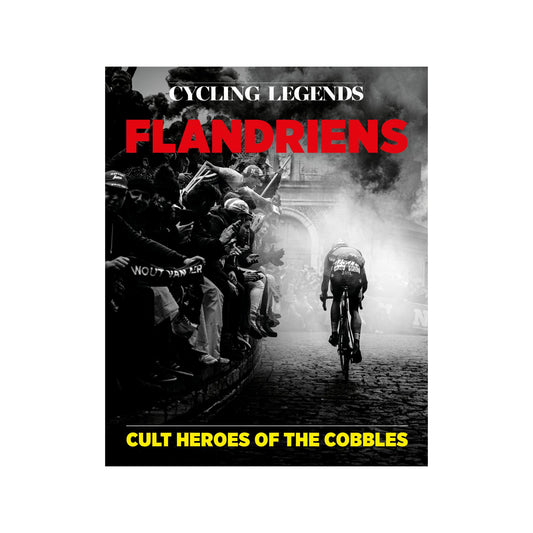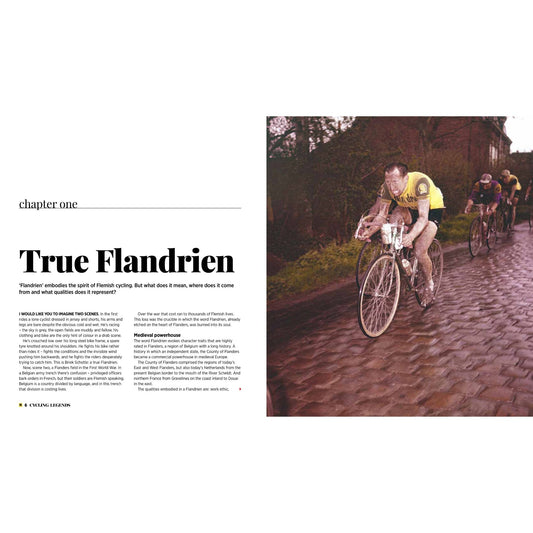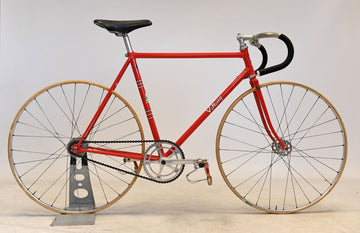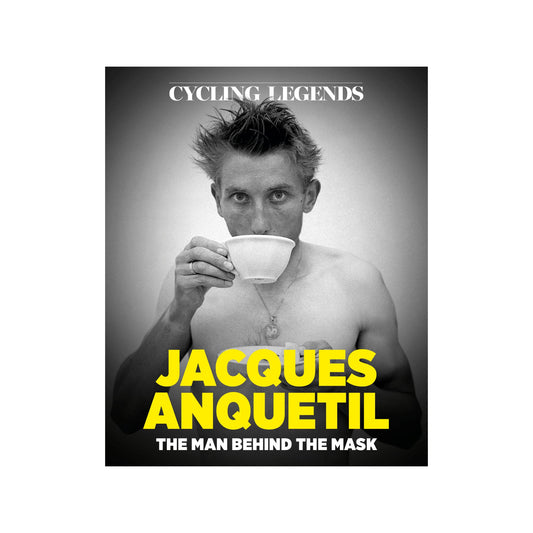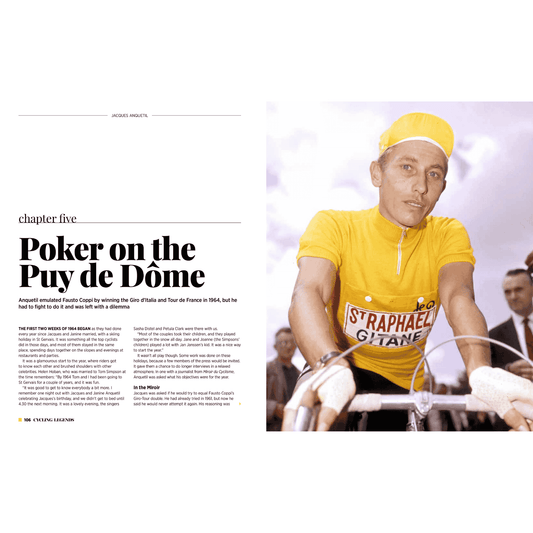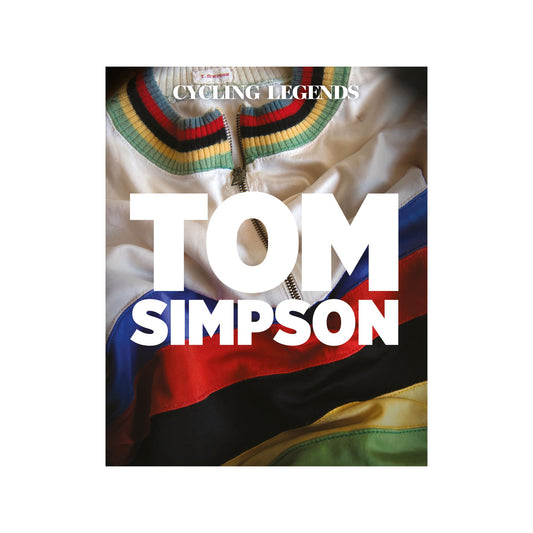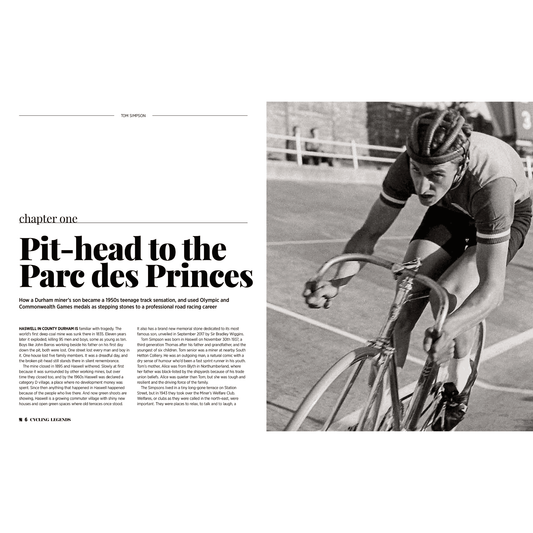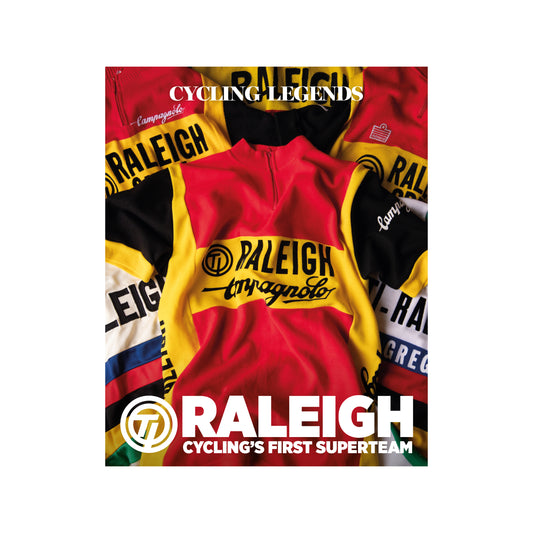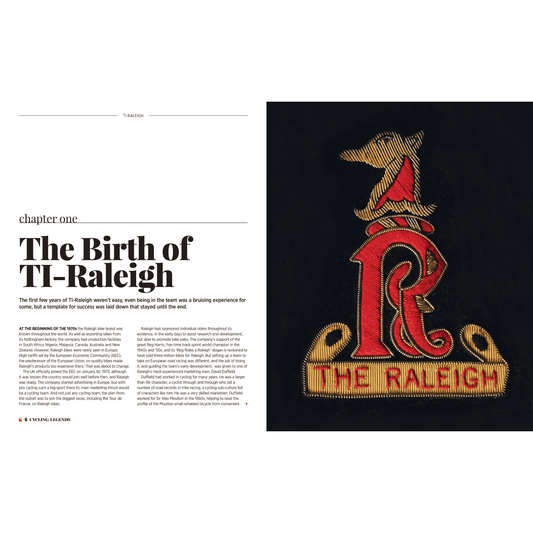This Viking track bike was ridden to victory in the 1963 world pursuit championships by a British legend.
Words: Chris Sidwells || Photos: Andy Jones
Beryl Burton won everything she could possibly win in the very restricted world of women’s cycling when she raced. But what races there were she often won many times.
Women have had a bad deal in sport, but cycling has been one of the worst offenders.
There were no official women’s world titles in cycling until 1958. And when they were introduced it was just a short road race, a track sprint and an individual pursuit.
It took until 2017 for women to get full world championship parity with men, when the Madison was added to the women’s track programme. And the Olympic Games are even worse.
Women weren’t included in Olympic cycling until 1984, when one event, a road race, was introduced in Los Angeles. Beryl Burton was 47 by the time that happened, still racing but well past her best. There were no Olympics for Beryl, but still her career was still golden.
She won 96 British titles, 72 in individual time trials, 12 on the track and 12 in the road race. Internationally she won her first world title in the pursuit in Amsterdam in 1959. She won the pursuit title again the following year, and in 1962, 1963 and 1966, and she took silver medals in 1961, 1964 and 1965, as well as four bronze medals between 1967 and 1973. Burton was also the world road race champion in 1960 and 1967, and was runner up in 1961.
Viking victory
She won the 1963 world pursuit title on the velodrome at Rocourt, a suburb of Liège, Belgium on this Viking track bike.
Viking was a Wolverhampton bike manufacturer founded in 1908 as a spare-time bike project by a railway clerk, Alfred Victor Davies. He started out simply repairing bikes, but his business quickly blossomed into a bike shop, and around 1934 he moved into manufacturing.
Alfred’s son Reg Davies registered the business as Viking Cycles Limited in 1939, by which time it was producing 800 bikes a year. By the end of the Second World War production had risen to over 2000 per year. Then Viking decided to get into racing.
The company sponsored a men’s professional team from the birth of road racing in the U.K. until the 1960s, and many successful amateurs raced on Viking bikes ‘loaned’ to them by the company. One of them was Beryl Burton.
Reynolds 531
Beryl’s frame is made from Reynolds 531 double butted tubing. It has some nice curly lug-work and was resprayed at the Universal Cycle Centre in Maltby, South Yorkshire, where the bike is now on show.
The paint finish is slightly lighter red than the original, which also had a white head-tube. The Viking decals are also more recent, but the seat-tube decal still references the five Tours of Britain won by Viking sponsored riders.

The wheels are 28 spoked, tied and soldered where the spokes cross to make them stiffer, with Airlight hubs. Airlight were jewels of British engineering, and had terrific bearings.
The wheel rims are Italian, made by Fiamme. And the tubular tyres, which are too old to inflate, are the legendary Clément number 1s, known as ‘white strip’. The word ‘Seta’ on the sidewalls refers to the silk tyre casing, to which a thin rubber tread was bonded.

Plastic saddles
The handlebars and stem, while from the correct era and of a type Beryl Burton used, aren’t original, but the Unica Nitor saddle is.

Before the 1960s all race saddles were made of thick leather. They were comfortable once broken in, but they required care, no two were the same, and they were heavy. Then in 1961 Tommasso Nieddu of Turin and Cino Cinelli started producing plastic saddles under the Unica-Nitor brand.
They were black or orange, very light but very stiff, which made them quite uncomfortable over long distances. They were perfect for short races like the track pursuit, though. The one on Beryl’s bike is wider at the back and is the women’s version of the basic Unica Nitor.

The drive-train is by Campagnolo, but although the 49 tooth 1/8 inch pitch chainring is original, the 16-tooth Campagnolo fixed sprocket was fitted by a later owner.

Provenance
The bike had history after Beryl Burton raced on it. She and her husband Charlie sold it to Walter Hall, known to everyone as ‘Walt’, the owner of the Bridge Tearooms in Blyth, Nottinghamshire.
Walt was a close friend of the Burtons, and they sold the bike to him because a £100 bonus promised by Viking if she won a world title on it, never materialised.
Hall later sold the bike Tony Siviter, who worked at Henry Holmes Cycles in Rotherham. He then sold it to 12-hour time trial champion Tom ‘Ticker’ Mullins, who in turn sold it to grass-track ace Ken Cowdell, who sold it on to Roger Hampshire.
All the last three owners won the Brookhouse Hill climb, which is a bit of a South Yorkshire classic, on this bike, so it had a racing pedigree long after Beryl Burton rode it to that world title in Belgium back in 1963. A real race-winning bike.
